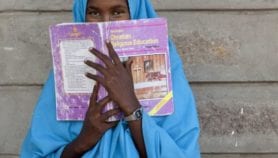Send to a friend
The details you provide on this page will not be used to send unsolicited email, and will not be sold to a 3rd party. See privacy policy.
Since the UN Millennium Development Goals were set in 2000, development has climbed up the international political agenda, with G8 leaders promising to double aid for Africa.
But as the 2015 deadline approaches, this increase in aid has not materialised on the ground, says this Nature editorial. In addition, the quality of data used to assess progress towards the goals is woefully inadequate.
The UN reports progress each year. This is measured by comparing quantitative indicators, such as child mortality, against a 1990 baseline. But most of the 163 developing countries have no hard data.
For many indicators, there are less than two data points between 1990 and 2006. UN agencies use modelling techniques to fill the gaps, but these are potentially misleading and risk political interference.
The lack of data makes it difficult to assess the effectiveness of any new measures. For example, it is impossible to tell whether the introduction of bednets has significantly contributed to controlling malaria.
The editorial calls for more investment in evidence-based research to assess whether interventions work.













